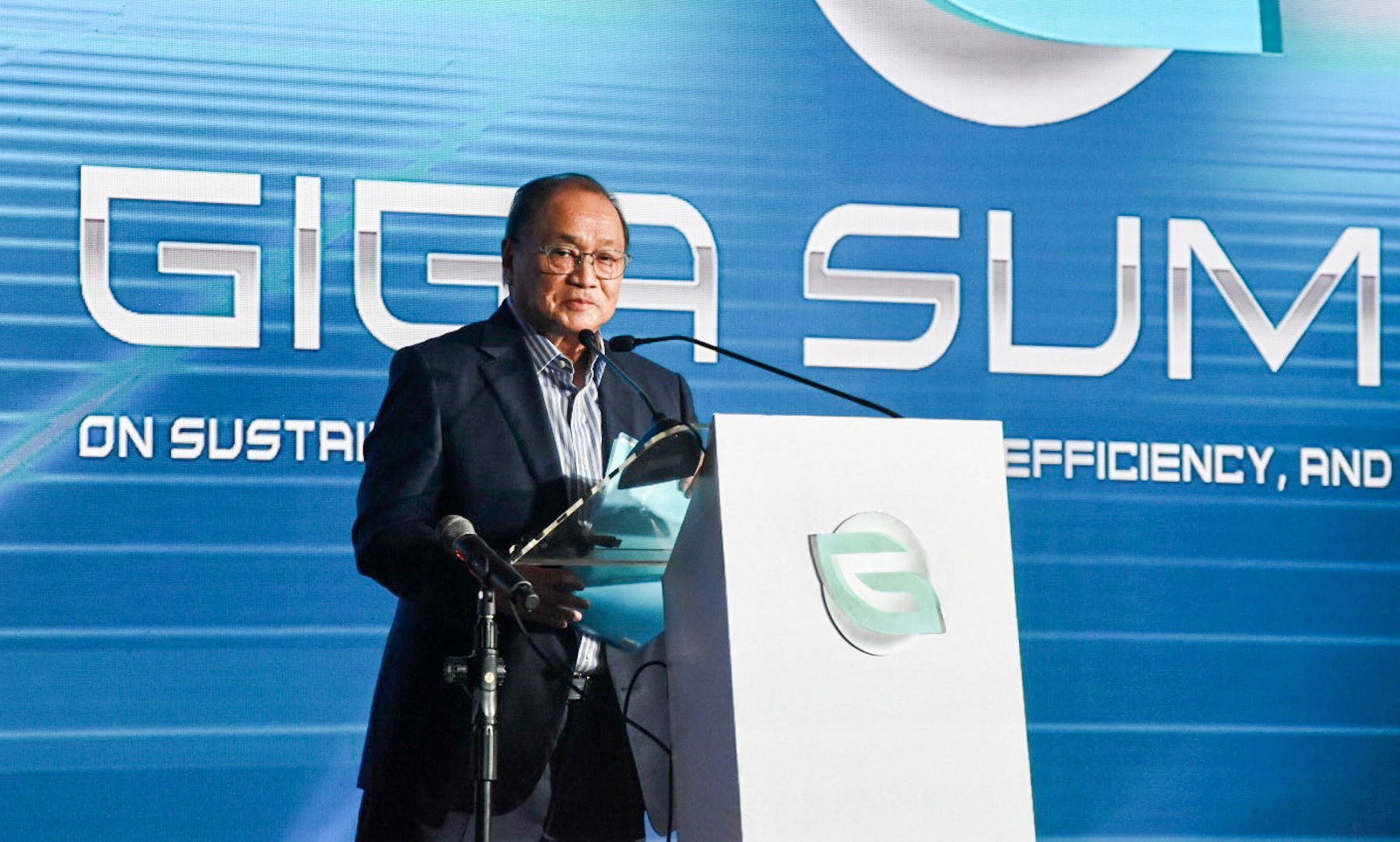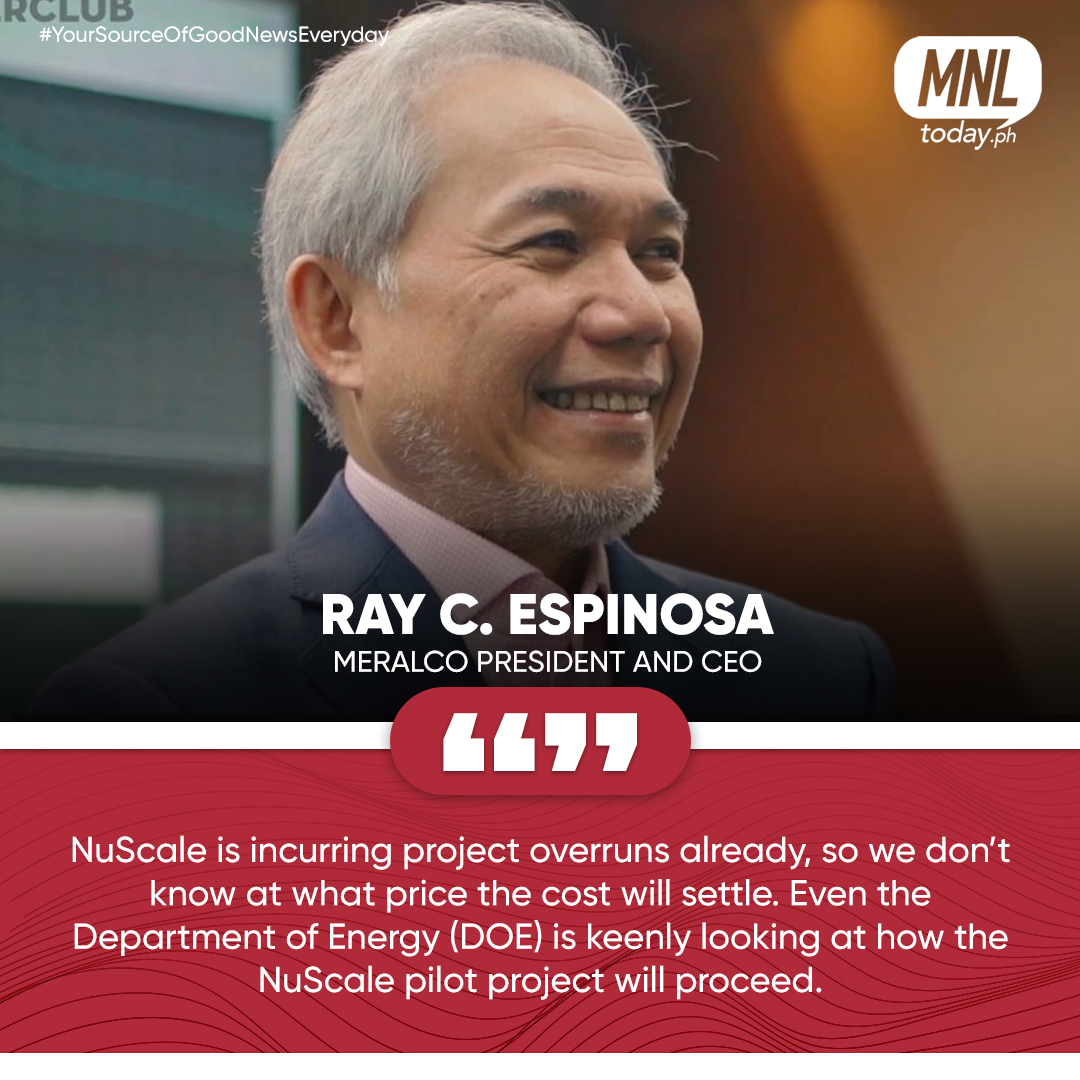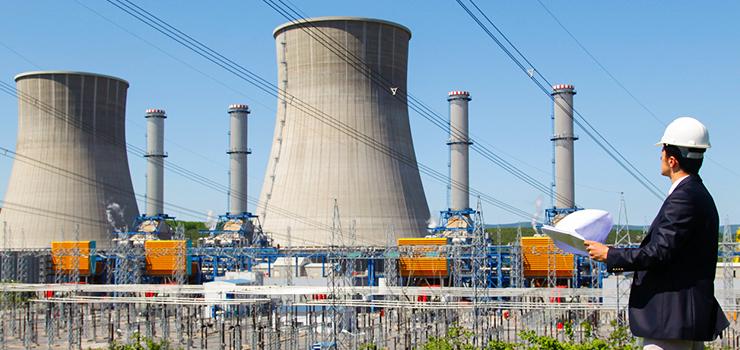To help prepare the country on its goal to be experts in nuclear energy, Manila Electric Company (Meralco) is ready to offer scholarships to students and professionals who are interested to pursue degrees in nuclear science, nuclear engineering and related fields.
According to Meralco Chairman Manuel V. Pangilinan, the utility firm is prepared to sponsor scholarships for Filipinos in that particular area – to capacitate them to operate the nuclear plants eventually; and for the country to set up its own regulation. Without upskilling Filipino talents first in the field of nuclear engineering and sciences, he noted that the Philippines cannot efficiently and effectively cement its renewed plunge into nuclear power development.

While acknowledging that the nuclear pathway remains an uncertain development terrain for the Philippines, Pangilinan indicated that the best we can do for the moment is to really maintain a vigilant watch on what’s happening in the United States.
Pangilinan narrated that the licensing for the targeted rollout of small modular reactors (SMRs) in the United States will be by 2028 – primarily taking off from the pilot project-fleets of Portland-headquartered firm NuScale Power LLC, a company which is also offering its SMR technology to the Philippines. He added that a key matter to ponder on is: “is the country ready for it? I don’t think we are ready. We should be able to understand the risks associated with nuclear plants, and I don’t think we do.
Meralco President and CEO Ray C. Espinosa similarly stated that one facet of development being cautiously monitored by the Philippine energy companies is the cost overruns being suffered by NuScale on its pilot projects – because that is seen to have subsequent bearing on the costs to be paid for by consumers.

NuScale has been leading SMR technology rollout with funding from the U.S. Department of Energy and other partners. The goal of the project is to design, build, and deploy SMRs that can generate electricity for up to 60 years with minimal environmental impact and enhanced safety features.
Nevertheless, the swell on its project costs have been igniting concerns on the future viability of SMR-leaning nuclear power installations; especially if this would be pitted against technologies that have already reached their commercial maturities in energy markets.
Espinosa further said for the target to deploy the SMRs of NuScale in the country, “we also don’t have basic agreement with the United States government that will account for the transfer of US technology to us; and from what we understand, that will take 2 to 3 years.”
As emphasized by experts, technology transfer on nuclear refers to the process of sharing or transferring nuclear technology from one entity to another – such as from a developed country to a developing country; and this transfer could cover knowledge sharing, expertise, equipment, materials, and other resources necessary for developing or operating nuclear technology.
With additional reports: Manila Bulletin, Myrna M. Velasco






